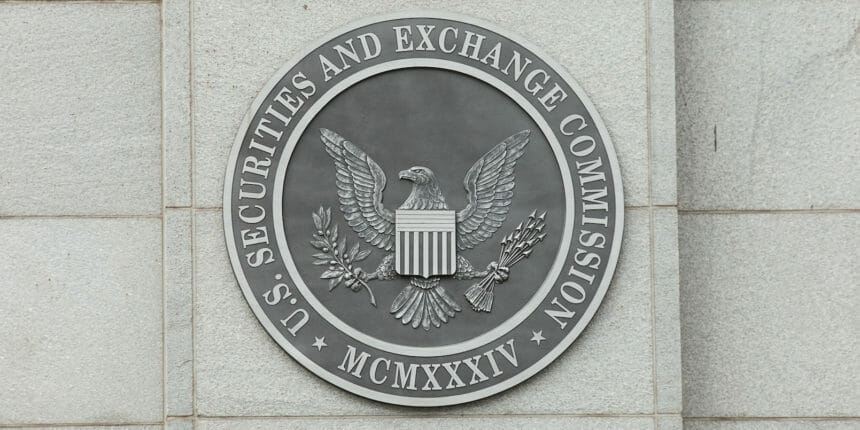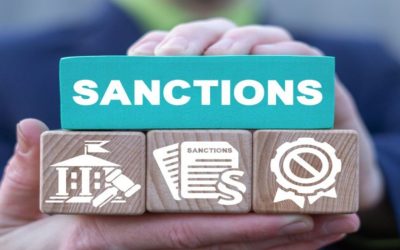Recently the U.S. SEC’s Division of Corporation Finance, Division of Investment Management and Division of Trading and Markets released a statement following the enforcement actions against companies Airfox, Paragon, CryptoAsset Management, TokenLot, and the founder of EtherDelta.
The statement began with a clause emphasizing that while it encourages such advancements, these individuals and companies must still adhere to the federal securities laws that govern the nation when they are applicable.
The issues touched on in the statement fall into the below categories:
- Initial offers and sales of digital asset securities
- Those who advise others about investing in digital asset securities
- Investment vehicles investing in digital asset securities
- Secondary market trading of digital asset securities
- Reporting standards for issuers of digital assets
Here are five key takeaways from the Commission’s statement:
- Read, Repeat and Remember these Two Questions
When is a digital asset a security for purposes of the federal securities laws?
If a digital asset is a security, what commission registration requirements apply?
Under the first category, Initial Offers and Sales of Digital Asset Securities, the Commission states all of their actions to date have focused on these two questions, and both AirFox and Paragon received settled orders from the Commission due to lack of compliance with federal securities laws relating to these questions.
The Result? Their unregistered offerings of tokens have resulted in both companies:
- Paying penalties
- Receiving requirements to register the tokens as securities under Section 12(g) of the Securities Exchange Act of 1934
- Being required to file periodic reports to the Commission
- Being required to compensate investors who purchased tokens if they choose to make a claim
- The Crypto Asset Management Order
The Crypto Asset Management order was given to a hedge fund manager for failing to comply with federal securities law. Not only did the hedge fund manager fail to properly register the fund as an investment company but also knowingly made misleading statements to investors in the fund, violating anti-fraud provisions of the Investment Advisers Act of 1940.
The statement moves on to address the facilitation of electronic trading due to the advancements in blockchain and distributed ledger technology.
- Exchanges
“Any platform that promotes trading of digital asset securities between two parties” is an “exchange” and must register with the Commission as a national securities exchange or be exempt from registration.
EtherDelta’s founder received an order for failing to register the platform as an exchange. In the Commission’s eyes, EtherDelta served as a hub (or marketplace) for buyers and sellers of digital asset securities.
In this case, the Commission stated this was a CLEAR violation. EtherDelta’s choice to represent themselves through distributed ledger technology does not eliminate the fact that they essentially operate as an exchange.
- Even Though You May Not Be an Exchange, Broker-Dealer Registrations Are Still Required
The Commission’s order to TokenLot stated that the company was a self-described “ICO Superstore” which legally exemplifies as a broker-dealer relationship. Though not necessarily an exchange, TokenLot facilitates transactions in digital asset securities and under the Exchange Act is required to register as such.
- Legal Counsel Concerning the Application of Federal Securities Laws is Recommended
The statement concludes with encouraging words to the community about their support of innovation but also highly recommends that any entity employing new technologies seek legal counsel around the area of federal securities laws, and contact Commission staff, as necessary, for assistance.
Ultimately, what can be gained from this statement is that the U.S. SEC has taken proactive steps toward correcting the current Token landscape to ensure that Tokens are functioning legally and ensuring investor protection. Security token offerings (STOs), exchanges, broker-dealer relationship platforms and investment vehicles investing in digital asset securities should make registration and compliance a priority to avoid strong penalties similar to those faced by Airfox, Paragon, CryptoAsset Management, TokenLot, and the founder of EtherDelta.
Learn how iComply can help you adhere to global compliance, securities, AML, and privacy regulations in over 150 countries.
About iComply Investor Services Inc.
iComply Investor Services Inc. (iComply) is an award-winning software company focused on reducing regulatory friction in the capital markets. With powerful data, verification, tokenization solutions, iComply helps companies overcome the cost and complexity of multi-jurisdictional compliance to effectively access new markets. Learn more: iComplyIS.com
2025 Outlook: Data Privacy and Security in KYB, KYC, AML Compliance
In today’s rapidly changing digital landscape, data privacy and security are more crucial than ever for compliance teams. As regulations tighten and cyber threats evolve, businesses must prioritize innovative solutions. Enter edge computing, a game-changer for KYC,...
Four AML Myths Commonly Found in US Companies
Debunk common myths about global sanctions, PEP, and AML screening in this guide for US businesses. Learn why even domestic companies need global compliance, and discover how iComply’s tools streamline screening, uncover hidden risks, and ensure regulatory readiness.
The Top Cybersecurity Threats of 2025 and How to Protect Yourself
Uncover the biggest cybersecurity threats of 2025, from advanced phishing to ransomware and deepfakes. Learn how iComply’s innovative live face match technology revolutionizes security with real-time, on-device biometric authentication, protecting user privacy, ensuring consent, and eliminating vulnerabilities in the digital age.
How a CISO Transformed Their AML Program to Meet BCFSA Requirements
Discover how a CISO at a credit union transformed KYB, KYC, and AML compliance to meet BCFSA standards. Learn how iComply’s holistic platform streamlined processes, reduced costs, enhanced security with edge computing, and improved member satisfaction.





